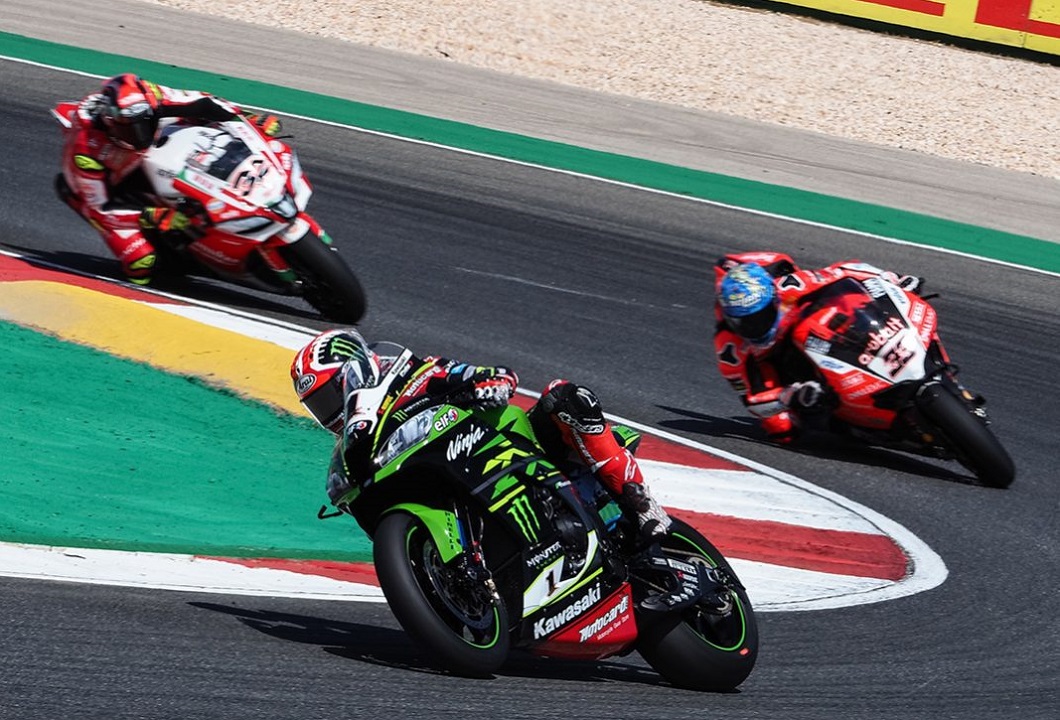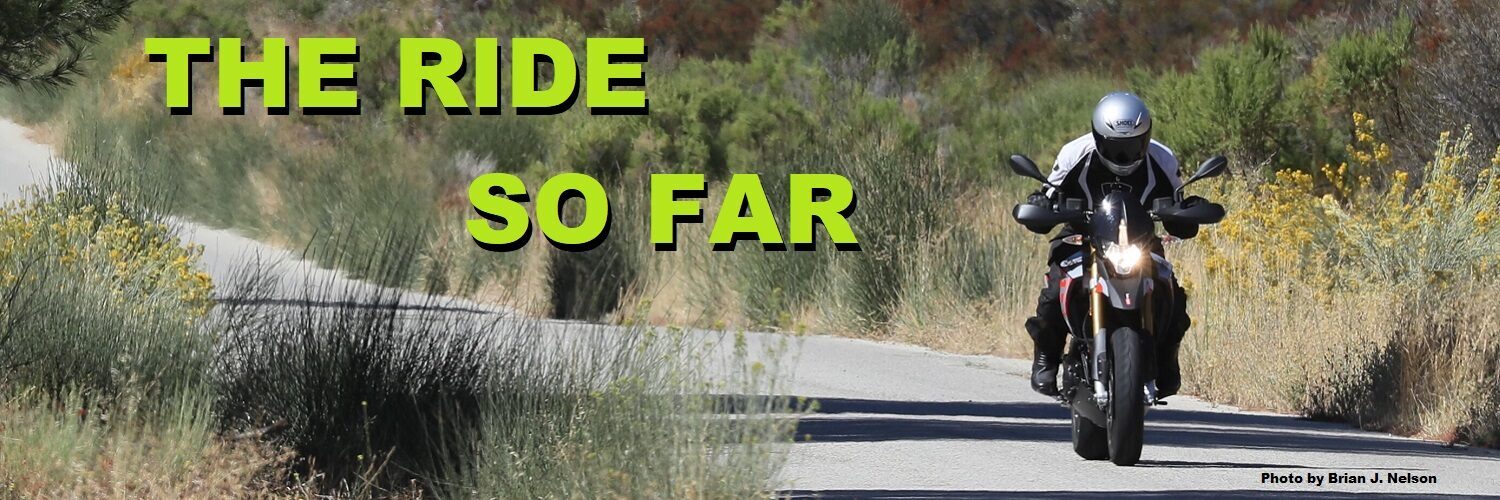
The people who run the Superbike World Championship are tired of seeing this guy out front and they’re going to keep changing the rules until they get a different result.
The 2018 Superbike World Championship season seems destined to be remembered as one that left nobody satisfied, except Jonathan Rea and the racing bosses at Kawasaki. The season ended today on a suitably disappointing note, with the cancellation of the final race of the year at Losail International Circuit, where it rained in the desert (surprise!) and water was flowing across the track.
It’s not the 2018 season I’m most dissatisfied with, however. It’s the future direction of the series under Dorna, the entity which now controls both MotoGP and WSBK and is intent on making it clear that WSBK, which once rivaled grand prix racing as the biggest roadracing series in the world, is now the second-class series. Even that wouldn’t be so terrible to me, except for the way they’re going about it. They continue making changes to World Superbike that make it less of a sport and more of a show.
WSBK changes for 2019
The latest tinkering with the WSBK weekend was the announcement earlier this fall that next year each round will have three Superbike races: the two full-length races on Saturday and Sunday and a shorter sprint race on Sunday, preceding the full race. The length of the sprint race and how points will be awarded for it are among the details that haven’t yet been provided.
it’s not hard to see the cynical thinking here. We’ve already seen what happens when a race is red-flagged and then resumes with a short sprint to the finish. Riders know they have little time, they take more chances and they’re packed together. Crashes and clashes are more likely, and that’s what the lowest-common-denominator fan loves.
This follows the last changes two years ago, when WSBK came up with its complicated system of gridding Superbike race two based on the results of race one, forcing the top three finishers in race one to start race two on the third row. It was a blatant attempt to handicap the successful (cough — Jonny Rea — cough) but in the end, as far as I could tell, it didn’t change anything. It may have helped Rea by putting both him and his closest competitors back on the third row, where Rea seemed to be better than anyone at slicing his way to the front quickly. Did the attempt to handicap Rea actually help him? Hard to say.
Either way, this the crux of the problem I have with Dorna’s approach. They keep manipulating the sport to try to change the results in way no one would consider in real sports. If the Golden State Warriors are up by 20 points at the half, the NBA doesn’t decide to raise the rim on their end of the floor to 11 feet for the second half, but if Rea wins race one, he has to start the next race from the third row as his reward.
There’s no doubt these are knee-jerk reactions to Rea’s domination. This year, Rea surpassed the most famous and infamous Superbike racer ever, Carl Fogarty, on the all-time wins list. He tied Doug Polen’s record of 17 wins in the season and would probably have broken that record (he certainly would have broken the record for most points scored in a season) if the second Qatar race hadn’t been canceled. Casual, uninformed and fairweather fans declare the races to be boring if the same guy keeps winning. So Dorna is trying anything to shake them up, short of making Rea trade in his ZX-10R for a Z125 Pro (and I’m afraid those sorts of drastic measures may yet come).
Toeing the line between sports and theater
The telling (and hyperbolic and, to me, appalling) line in the Dorna announcement of the changes for 2019 is this one:
“Nail-biting and enthralling races will be guaranteed as we welcome the WorldSBK weekend into a brand-new era with a whole new experience for fans and viewers the world over.”
See, that’s the problem. You can’t “guarantee” anything in sports. People around the world may spend four years anticipating the World Cup final and it could be a 5-0 snoozer. The Super Bowl may be a blowout before halftime, someone might win the British Open by 10 shots and the winner of the Olympic marathon might cross the finish line two minutes ahead of the next runner. Such moments when everything comes together in a great triumph don’t make for good nail-biting, but they are an inevitable part of the unpredictability that makes true sports fascinating.
Want a guaranteed nail-biter? Buy a ticket to an action movie. You can be sure the hero will go through all sorts of near-death experiences but you’ll get the result you want in the end: the good guy wins. Because the only way you can guarantee an exciting, close finish is to script it. Then it’s no longer sporting competition. It’s theater.
I miss the glory days of Superbike, when Fogarty on a Ducati 916 was more fun to watch than anyone on a two-stroke grand prix bike, when epic races and duels between characters, like the Colin Edwards versus Troy Bayliss championship battle of 2002, produced great drama without any grid gimmicks.
With every change, Dorna moves the Superbike World Championship a little further from those days and closer to a sideshow. And that, not the lack of photo finishes, is my biggest disappointment with WSBK.
